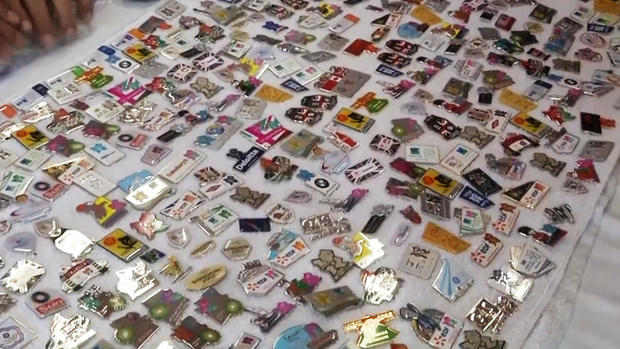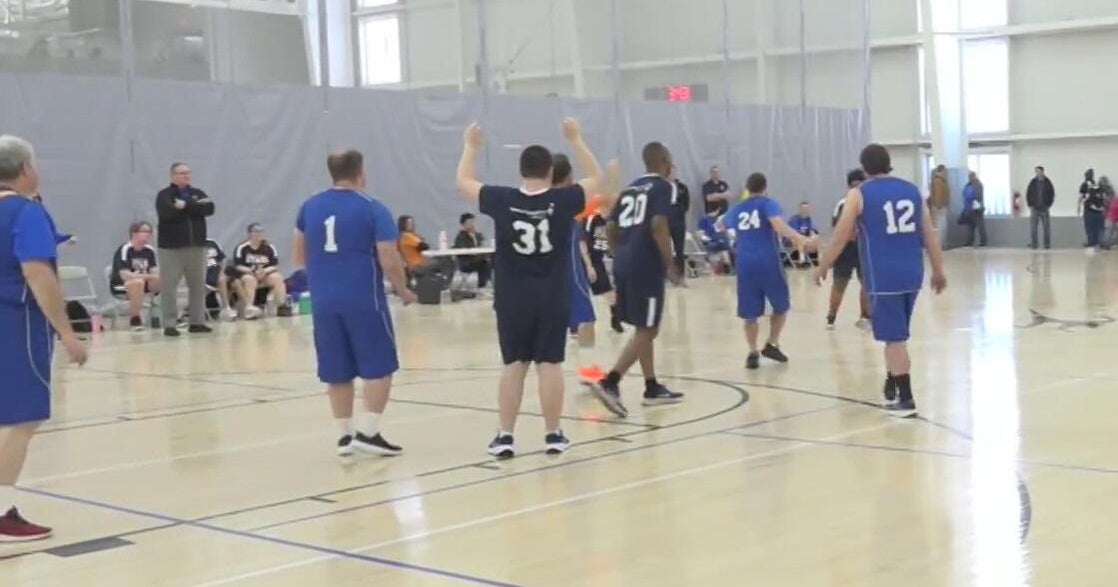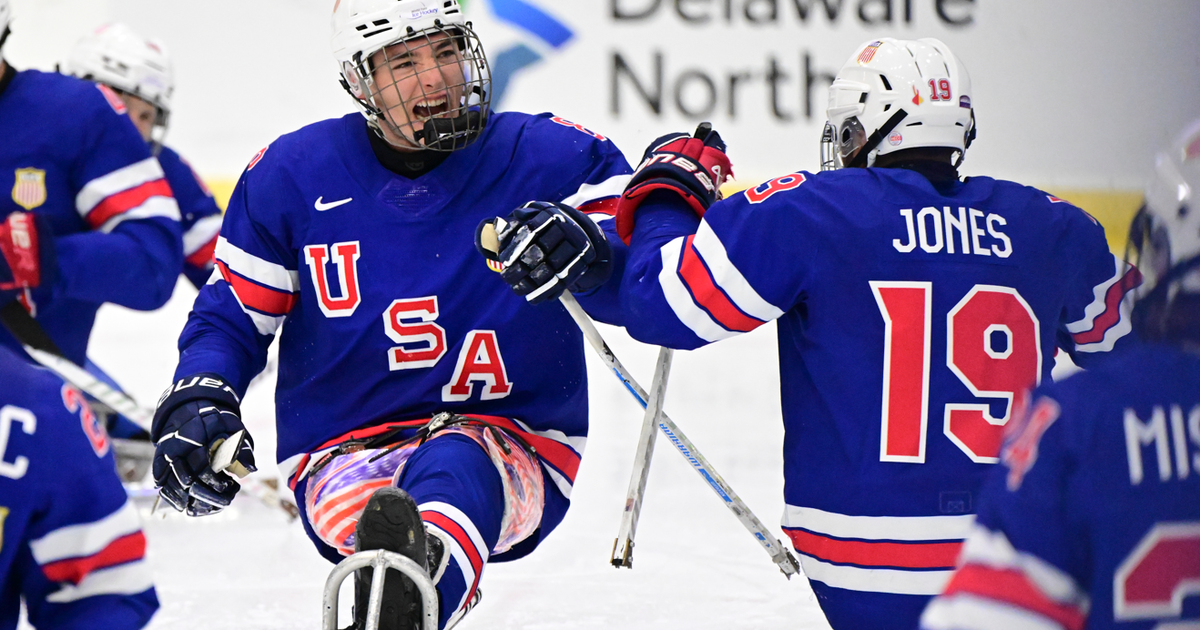The sport of Olympic pin trading
As Olympic fever takes hold over fans across the globe, there is an Olympic sport of sorts rarely, if ever, making headlines. This sport doesn't involve the athletes, though; rather, this competition takes place by fans attending the games.
It's Olympic pin trading, and collectors work almost as hard as the athletes themselves.
To watch our report click on the video player below:
Don Bigsby is president of the world's largest Olympic collectors club. The IOC-recognized Olympin has 500 members to date, and spans more than 30 nations.
"We're certainly nothing compared to the athletes, but our mentality probably is very close," Bigsby told "Sunday Morning" producer Roman Feeser. "I can remember back in the '80s – collecting was advertised as the twenty-seventh sport of the Games, because at that time there were twenty-six different sports. So, we thought that was kind of cool, that we were part of the Olympics! But we're certainly not athletes."
Los Angeles native Pam Litz, who sits on the board at Olympin, said the club and website are a great way to bring fans of Olympic pin collecting together. "You know, we're collectors and we want to have a way to connect," she said.
We know what you're thinking: Pins? Really? But this is a serious tradition, one Feeser learned about firsthand having worked many Olympics at USA House, a gathering place at Olympic sites for athletes, family members, sponsors and guests.
Pin collecting is believed to have begun as far back as 1896 at the Games in Athens, Greece. The pins were cardboard, and were used to identify athletes, officials and media. It is thought that some fans began to collect these pins, and thus a new kind of sport was born.
Litz has been an avid collector since 1984, when the Summer Games were in Los Angeles: "I was a volunteer. I saw these groups of people kind of huddled together. I kind of poked my nose in there [and] asked, 'What are they doing over there?' Someone said, 'Oh, they are trading pins! It's a big deal!' So, I went and stood in line, invested my $20 for four pins, and then put them on, and I thought, 'Now what I do?'"
That's when the games begin!
What you do is start looking for the best and most desired pins out there – and there are a lot to pursue.
There are sponsor pins; national committee pins; media pins; pins from organization committees vying to host future games; security pins; and commemorative pins.
For collectors, getting the gold could mean a rare or hard-to-find pin. For others, there's a financial incentive.
Don Bigsby recalls going to his first pin show in 1980: "I went to a ski show, and there was a man there selling pins. And he had his from Lake Placid 1980, some of the same ones I did. And he had prices on them, like $60, $80, $30. Whoa! I mean, I'm not in this for the money, but I didn't realize these things are so valuable."
Of course, trading pins during a pandemic hasn't been easy. Both the Tokyo Games and now Beijing have been hard on collectors, but it hasn't stopped them.
"There's nothing like being at the Games," said Bigsby. "Even to be trading by mail or the internet at home, it doesn't come close to comparing. It's the atmosphere at the games, being out in the street with hundreds of thousands of people from 200 countries.
"It's an education. I've learned things that wouldn't have interested me at all when I was in school, and now I learn it because it's part of doing the hunt," he said.
Story produced and edited by Roman Feeser.





